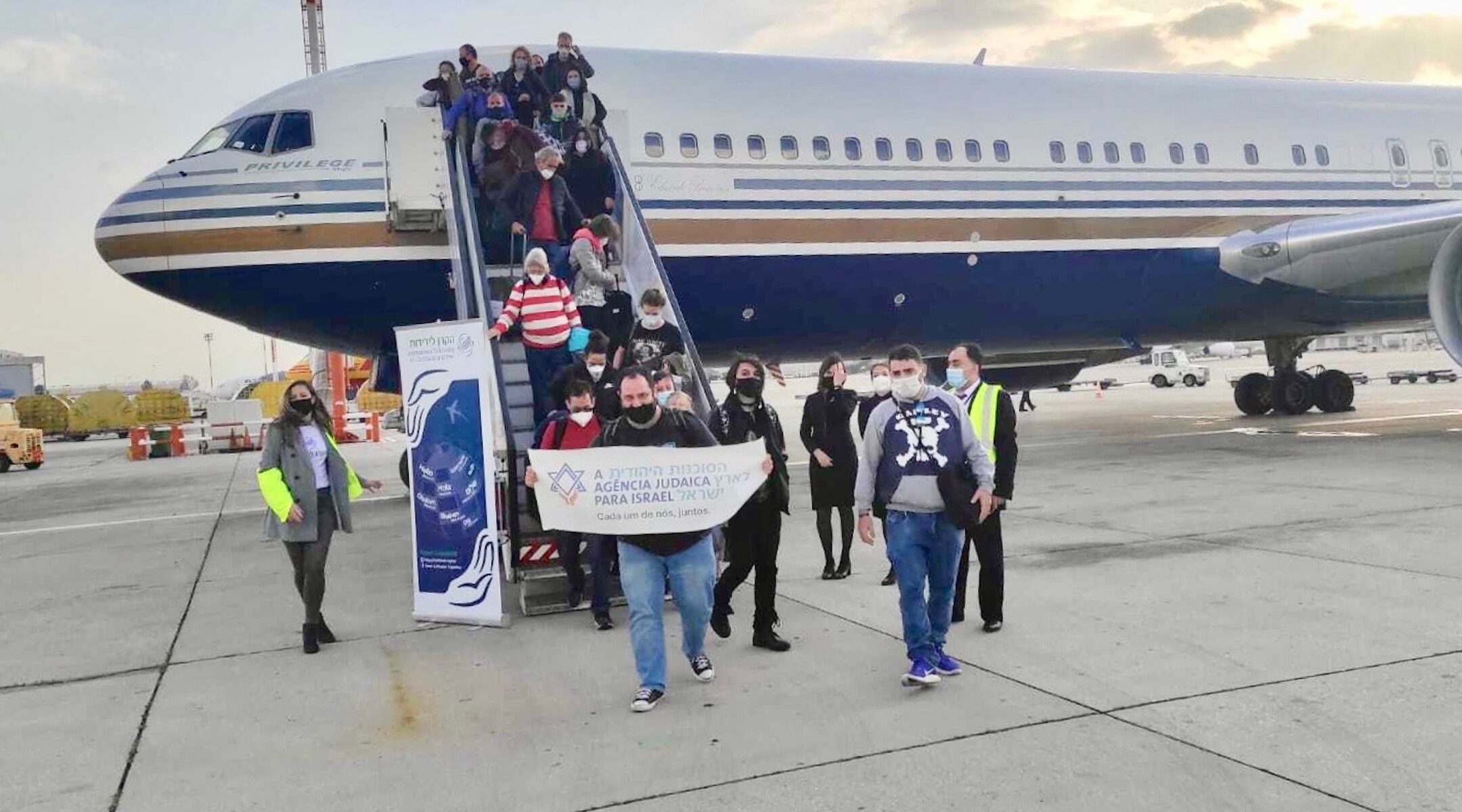(JTA) — A survey of Jewish community leaders in Europe found that 23% said they were considering emigrating.
That figure is unchanged since the last time the American Jewish Joint Distribution Committee conducted its regular survey of European Jewish sentiment three years ago.
But the JDC survey found that European Jewish leaders, especially in Western Europe, are increasingly concerned about antisemitism, which for the first time since 2008 topped respondents’ rankings of concerns for their communities.
It also found that European Jewish leaders say they feel less connected to communities across the continent than they have in the past and that they are more concerned about poverty in their own communities.
Only 3% of the leaders surveyed said they had made active preparations to leave Europe and 67% said they had not considered emigrating at all. Another 8% did not answer the question.
Of the Jewish community leaders who said they had contemplated leaving, roughly two thirds said they would make aliyah, or immigrate to Israel.
The survey did not ask respondents their reasons for contemplating emigrating. But it is clear from their responses that European Jewish leaders are increasingly concerned about antisemitism and security.
More than two thirds of respondents said they expected antisemitism to increase in Europe over the next decade; only about half of respondents answered that way in 2008, the first time the survey was conducted. At the same time, 22% of respondents said they feel unsafe in their cities now, compared to 7% in 2008.
Concern was highest in Western Europe, where a spate of jihadist attacks on Jews over the last decade have contributed to increased immigration to Israel, particularly from France. In the years 2000 to 2010, fewer than 20,000 French Jews moved to Israel. But in the last decade, more than 40,000 have, a trend that surged after a jihadist murdered four Jews at a Jewish school in Toulouse in 2012, and surged again after another jihadist attack in 2015 left four Jews dead at a Paris kosher supermarket.
The effects of the COVID-19 pandemic, which have hurt members’ income and communal cash makers such as museums, are also visible in the survey.
Poverty in the community, “though not one of the top threats, has grown steadily over the years, from 10% in 2008 to 35% in 2021,” the authors wrote. Some 37% of respondents marked financial hardship among members due to COVID-19 as a major threat to the community.
Efforts in several countries to ban the slaughter of animals for meat without stunning — a key factor in European efforts to curtail kosher slaughter — and non-medical male circumcision emerged for the first time as one of the top three greatest threats facing Jewish communities. Among respondents younger than 40, 26% said this was a very serious threat, as did 66% of older respondents.
Support for Israel has grown among respondents over previous polls. For example, 66% agreed this year with the statement “I support Israel fully, regardless of how its government behaves.” The same statement had a support rating of only 48% in 2015 and 57% in 2011.
But in keeping with trends detected outside Europe, respondents under 40 were less likely to agree with that statement and ranked support for Israel as the lowest among 18 communal priorities.
The survey included 1,054 respondents in 31 countries and was conducted in 10 languages. About a third of respondents said they were Orthodox Jews, while a similar number characterized themselves as culturally Jewish. Nearly 60% were male and over 55 years old, reflecting the fact that the survey is of communal leaders; few Jews under 40 sit on communal organizations’ boards, according to the survey.
JTA has documented Jewish history in real-time for over a century. Keep our journalism strong by joining us in supporting independent, award-winning reporting.






